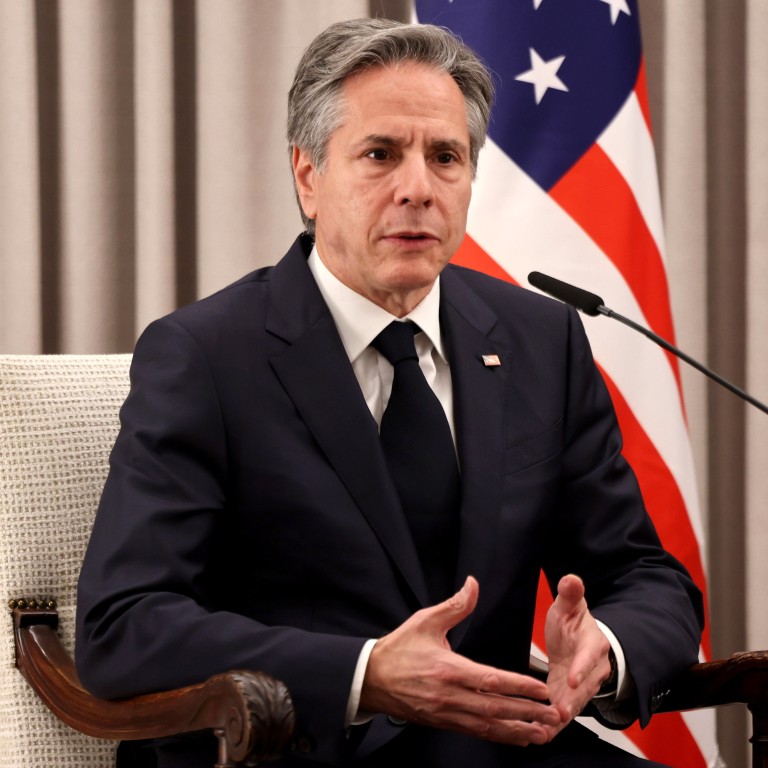
Blinken visit unlikely to fix US-China differences, but Russia a possible area of progress: analysts
- Tariffs, human rights and climate change among contentious items America’s top diplomat expected to discuss in Beijing
- Bilateral differences over Taiwan present sharpest areas of disagreement amid talk of possible cross-strait conflict
Jude Blanchette, Freeman Chair in China Studies at the Washington-based think tank Centre for Strategic and International Studies, stressed there should not be “many expectations” of any “significant breakthroughs” from the trip. But he added this was not a “bad thing” given how far the relationship had deteriorated over the last five years.
Blinken’s visit was mainly about “re-establishing the undergirding of the relationship and putting in place some procedures and mechanisms to be able to manage through the tensions”, Blanchette said.
“In a larger context of growing distrust over the overall motives of the other side in which China sees the US as supposedly trying to weaken and contain China [and] the US sees China supposedly trying to achieve dominance in Asia … both sides have increasingly relied on deterrence – particularly military deterrence – over forms of reassurance,” Swaine said.
Would a Cold War-style agreement help prevent China-US tensions from escalating?
Blanchette said Beijing would likely push the Biden administration to say something publicly that appears more closely aligned with America’s long-standing one-China policy.
Traditionally the US has maintained “strategic ambiguity” towards Taiwan, a policy of being intentionally vague about whether it would come to the defence of the self-ruled island. Beijing claims Taiwan as part of its territory and has not renounced the use of force to achieve reunification.
Blanchette said it was clear Beijing would enter the dialogue with Blinken aiming to slow down “some of the US actions in the tech space”.
While some have expected progress in cooperation on climate change due to increasing droughts and flooding in both countries, Michael Davidson, assistant professor at the University of California San Diego, said in a discussion with Swaine that China and the US had contrasting approaches to how climate figures into bilateral negotiations.
“The US side has pretty consistently viewed climate change as a silo, an area that could be continued in cooperation even as the rest of the relationship is becoming more contentious,” said Davidson, who previously served as the US-China climate policy coordinator for the environmental non-profit Natural Resources Defence Council.
Beijing, meanwhile, sees climate talks as “more of a holistic relationship”, he said. “And so the Chinese don’t see this as an area that can just be siloed off from the rest of the relationship, and those are very fundamentally different perspectives on the bilateral relationship.”
Chinese military’s soft power rise a concern, US congressional panel hears
Blinken and other US officials have stated repeatedly that they see no evidence of the Chinese government furnishing weapons or direct military assistance to the Kremlin.
“Here you have a problem on the Chinese side, between what the Chinese government as a central government might say it’s doing and what certain entities below the government might be doing vis-à-vis the Russians,” Swaine said.
“If they’re observing and supportive of certain types of sanctions against the Russians, they should, in fact, do that,” he added. “I don’t think it will be a hostile conversation on this topic, because the United States certainly wants to keep the Chinese, at the very least, where they are now.”
Kennedy explained that during a visit last year to China he learned some analysts in the country regarded Beijing’s policy towards Ukraine and Russia as a “strategic blunder”.


